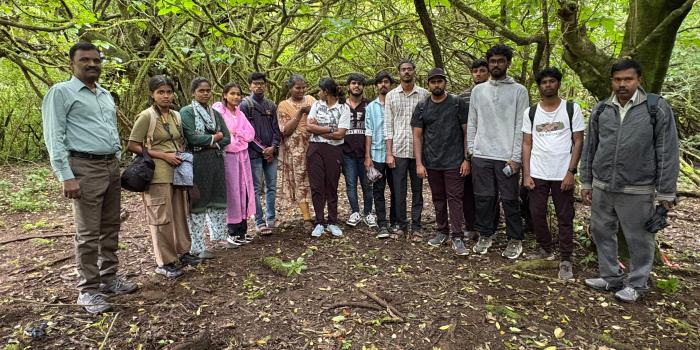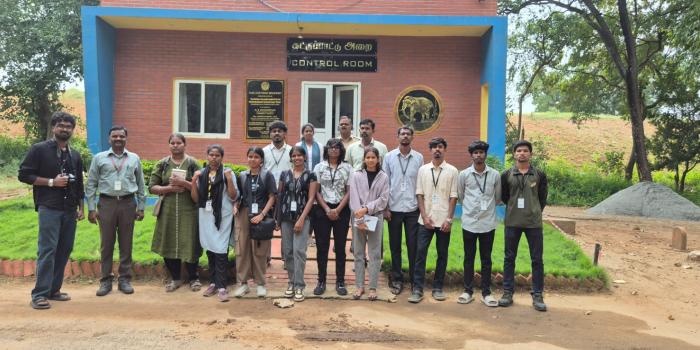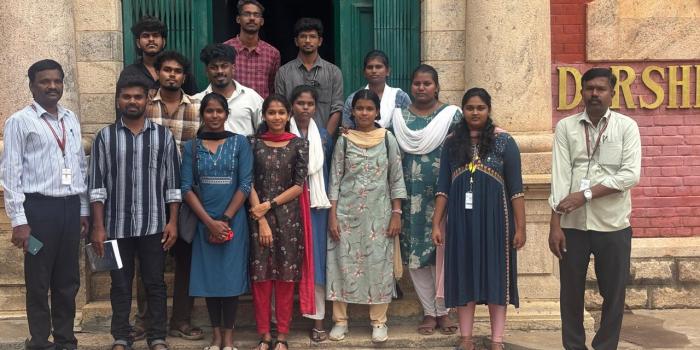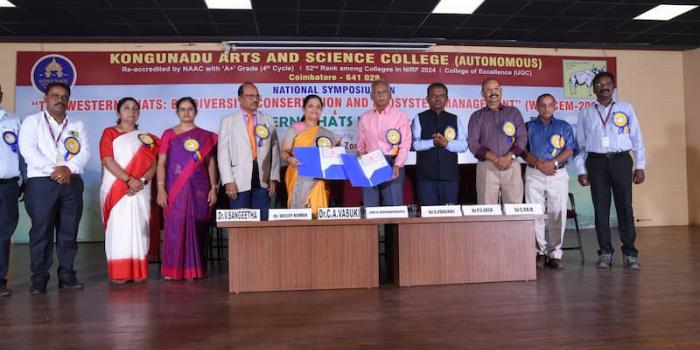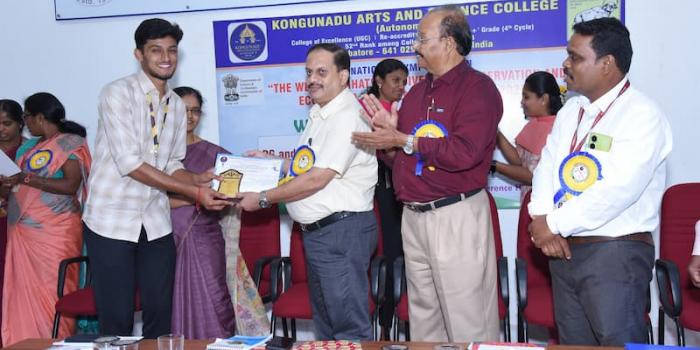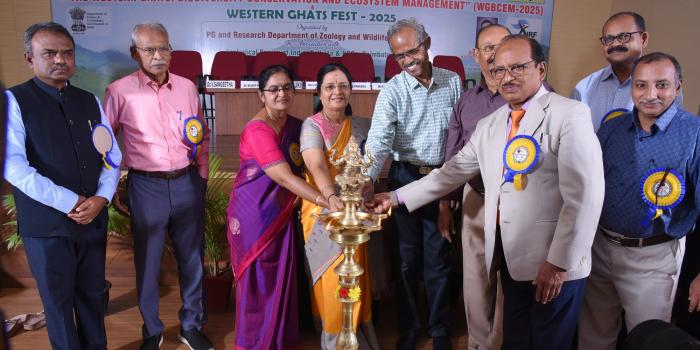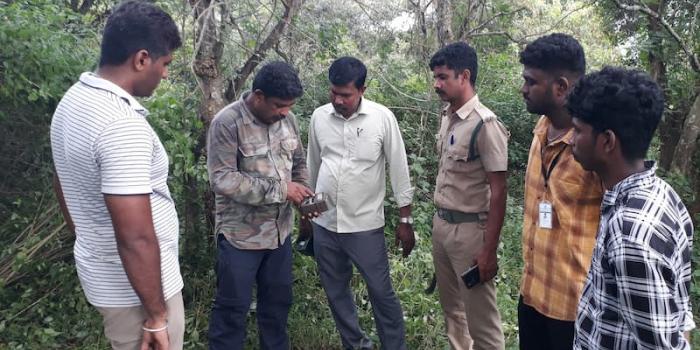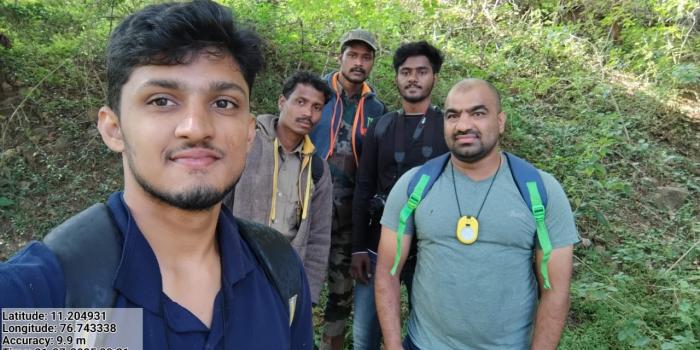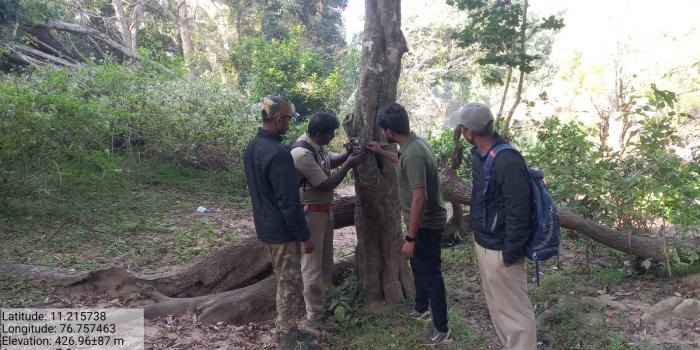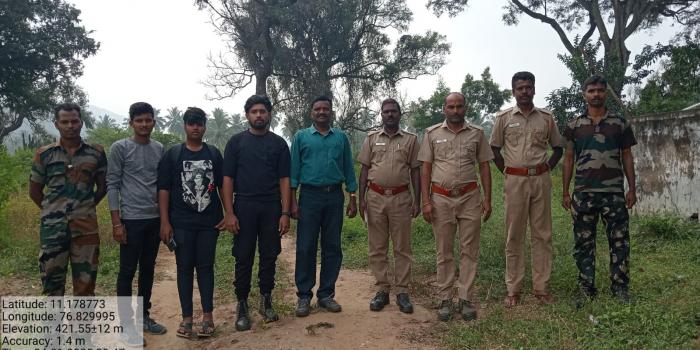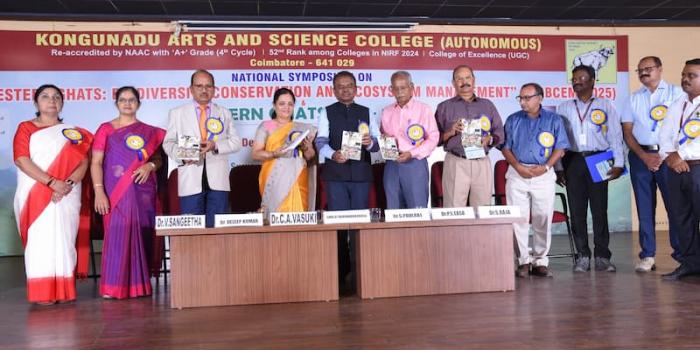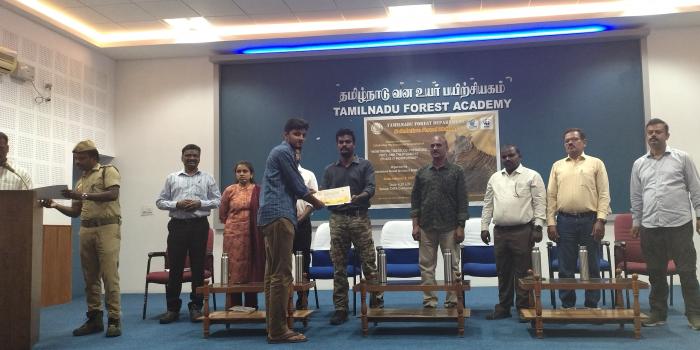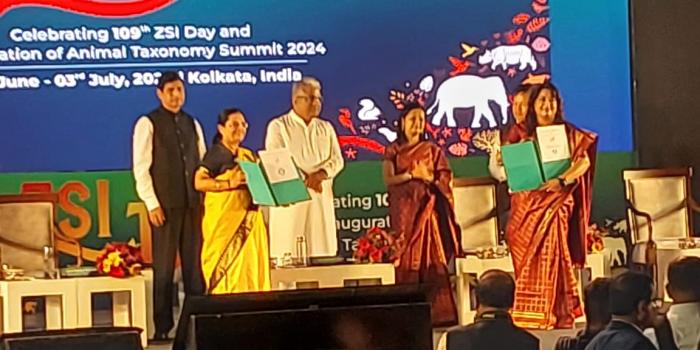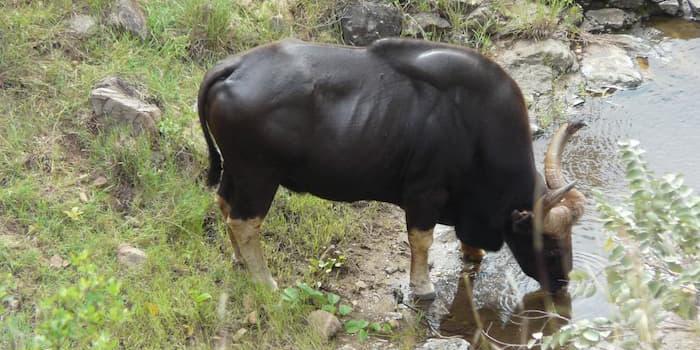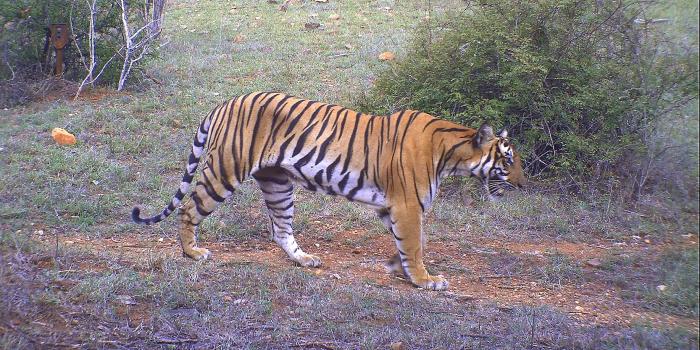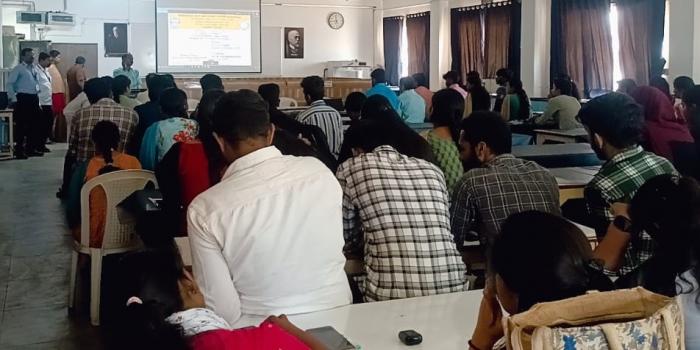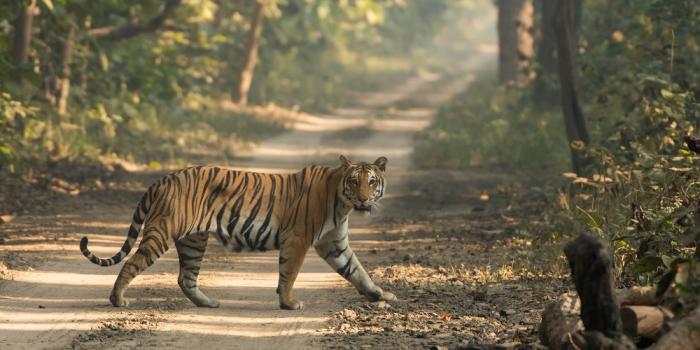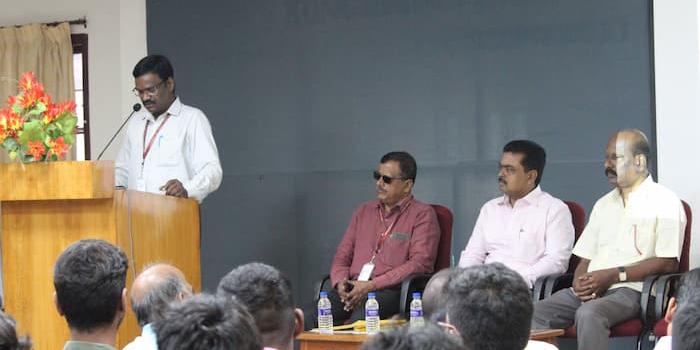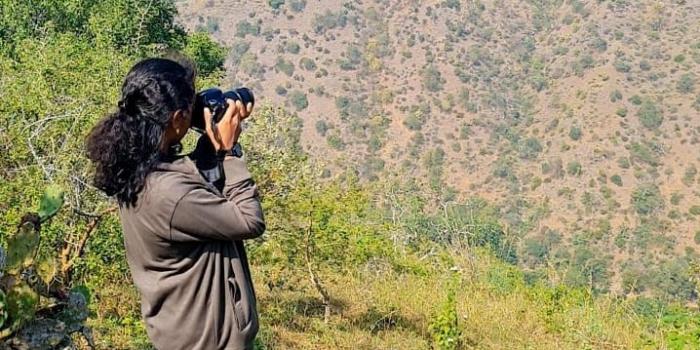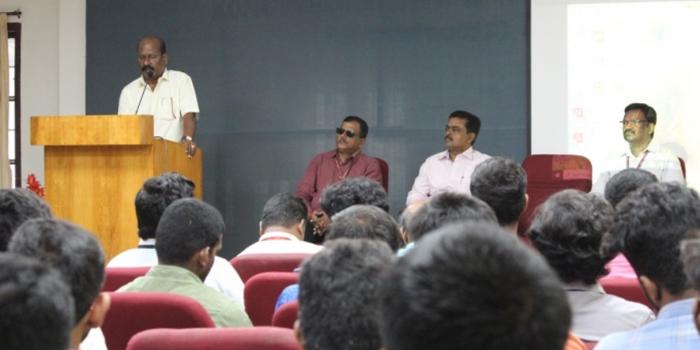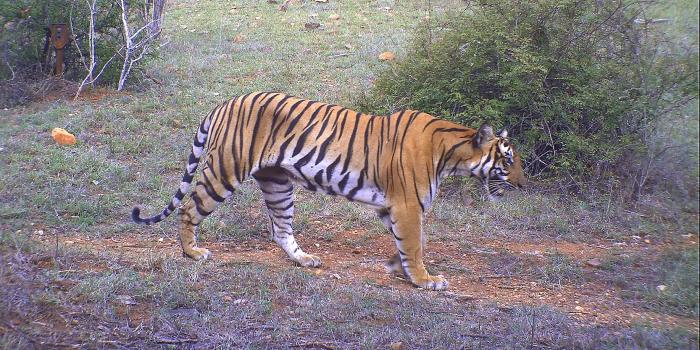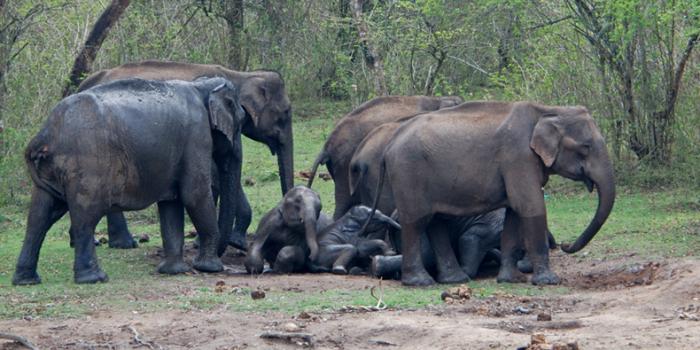- Genesis
The M.Sc. Wildlife Biology programme was launched in May 2023 by our eminent Secretary and Director Dr. C.A.Vasuki. This commendable and remarkable initiative marks a historical milestone for both college and the Kongu region. Since Coimbatore is surrounded by the Nilgiri Biosphere Reserve of Southern Western Ghats, it is pertinent that this programme is introduced in KASC which has a long-standing on teaching and research. This programme aims to equip students with the necessary knowledge, skill sets, and attitude to decipher ways and means to protect and conserve the diverse flora and fauna that inhabit our planet.
- Salient Features
The course Wildlife Biology will impart theoretical exposure, inbuilt practical components, and technical skill development. Enrich a holistic approach to conserving nature and natural resources for the well-being of all organisms.
- Vision
To increase the knowledge in the area of wildlife both flora and fauna for understanding the value of Wildlife Biology and conservation of the ecosystem through societal-oriented applied research using ecosystem management by students through high-quality education and research.
- Mission
To create awareness for understanding the importance of animal diversity and conservation of biodiversity
To mold the students in the field of Wildlife Biology both in theory and practical to equip themselves in the area of Wildlife Biology and its related field for their employment opportunities.
To involve, the students in activities of conservation of wildlife and its related research activities
- Course Objectives
- Thorough understanding of wild flora and fauna.
- To strengthen, the students to learn and apply the theories, concepts, and various methods pertaining to wildlife.
- To shape the learner to face real-time problems in the wildlife field.
- Inculcate and educate young researchers to bring out their ideas for creating new methodologies for population assessment and mitigating the human-wildlife conflict.
- To ignite research in students' minds based on current findings, skills, and knowledge.
- Thrust Areas
The faculties in the department have a good research background with field knowledge and has the following thrust areas of interest.
Amphibians and reptiles
· Birds and mammals
· Forestry and silviculture
Wildlife Crime Control
· Monitoring Illegal Wildlife Trade
· Human-Wildlife Conflict Mitigation
· Zoo Management
· Geographical Information System (GIS)
Wildlife Natality, Mortality and Population Parameters
· Taxonomy of animals
· Forest entomology
· Wildlife ethology
- Milestones
Since the department is still in its infancy, the following benchmarks must be met in the upcoming years:
1. Make sure the job opportunity to the students
2. Well-equipped the students on wildlife conservation and management that would enhance the better exposure in the field of wildlife.
- Roll of Honour
Faculty Name
Designation
Period of Service
Dr. G.Sivasubramanian
Assistant Professor and Head (i/c)
Period of Service: From 2023 to till date
Dr. G.Srinivas
Assistant Professor
Period of Service: From 2023 to till date
Dr. S. Paulsamy
Visiting Professor and Director, Professor M.Aruchami Foundation
Period of Service: 33 years



